Hundreds are dead after succumbing to Las Vegas’ heat. Here are 3 of their stories
Hanging on Judy Reiber’s kitchen wall is a photo of a particularly bad snowstorm that finally convinced her it was time to leave Colorado. What she didn’t know then was that the Nevada heat would kill her.
Reiber is only one of at least 402 people who have died from heat-related illnesses this summer, marking the deadliest heat year on record for Las Vegas since the coroner’s office began to consider heat a contributing cause of death in 2021.

“Heat is a killer,” her husband, Tim Reiber, said in an interview. “You don’t get enough fluids one morning, and you’re out in the heat — I don’t care what your age is — it could be your last day.”
It is also a chronic stressor. This year, Nevada experienced the most heat-related emergency room visits since the state began recording them in 2020, according to data obtained by the Las Vegas Review-Journal. Preliminary numbers show that there were 4,014 of them — close to a 42 percent increase from 2023.
The ends of more than 400 lives in the summer heat look quite different — some suffered because of their age, drug use or lack of housing. Some seem foretold because of risk factors, and others seem random and senseless.
But they all have one thing in common: The punishing desert heat was either the primary cause of their death, or a contributing factor.
“Heat illness is a continuum of dysfunction of the body,” Clark County Coroner Melanie Rouse said.
At 79, Judy Reiber was healthy, save a bout of breast cancer in 2002 that she had overcome.
Mostly retired, she worked part time at the Nathan Adelson Hospice as a nurse, comforting the most vulnerable in their final moments.
She spent time each day sunbathing and reading fiction on her patio in east Henderson. Her home, where she lived with her second husband, was plucked out of a tropical postcard — a way to honor her upbringing in Florida.
“It’s a Florida girl thing,” Tim Reiber said. “Florida girls love to sunbathe.”
One of the risk factors for heat-related deaths is old age, according to Dr. Ketan Patel of the emergency department at University Medical Center. As people get older, their bodies are less resilient to intense heat, he said. They might have underlying conditions or take prescription drugs that have this effect, as well.
When Tim Reiber, a lead baker at MGM Grand on the Strip, came home home from the night shift on a Thursday morning, he gave Judy a kiss — one he now remembers as extra sweet. When he woke up hours later, he did not hear the typical sound of her bath running in the other room.
Catching a glimpse of her blistered body collapsed on the ground, he ran outside and called 911. Some glimmers of hope remained amid the panic — he performed CPR until he heard his wife’s ribs crack.
Then, the reality set in: His wife of nearly 30 years was gone.
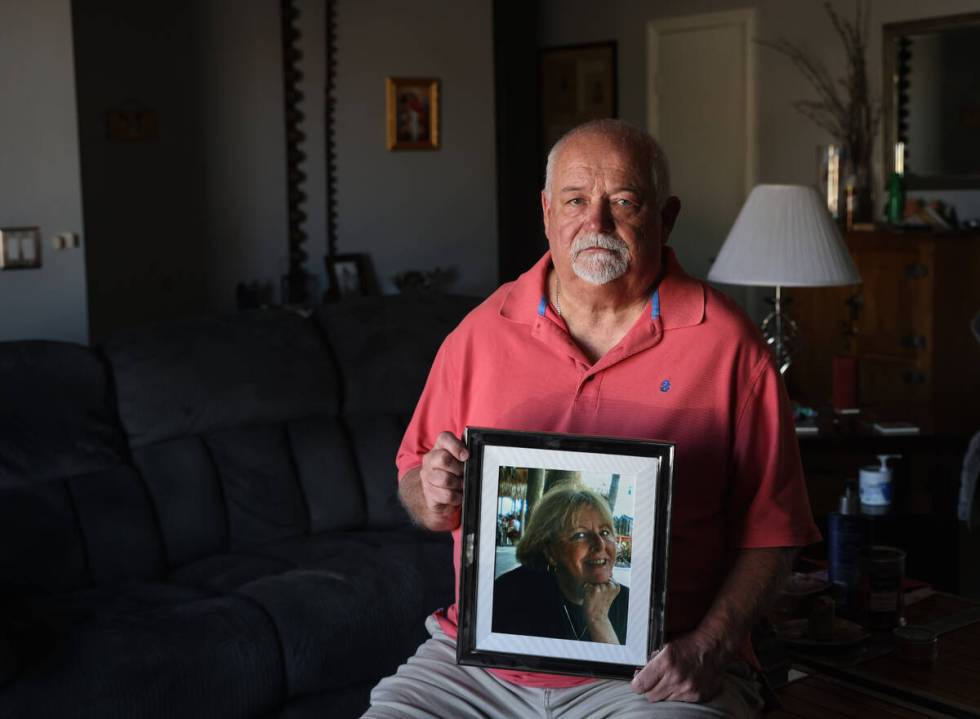
In the immediate aftermath of losing his soulmate, when police investigators arrived, Tim Reiber was a murder suspect. How could an otherwise healthy woman slip away in a flash? He knew the menacing desert heat had to be the culprit, and his suspicions were confirmed when the coroner’s report arrived eight weeks later.
“What can you do? Someone had to go first,” Tim Reiber said through tears. “Now I know why so many men die first, because you don’t want to be left.”
It reached 113 degrees on June 6, according to the autopsy report — one of the hottest days in a summer that would see temperatures skyrocket alongside heat-related deaths. Climate change increased the likelihood of that day’s average temperature fivefold, according to science communications firm Climate Central.
Heat a deadly challenge for homeless, too
This summer, nighttime offered no reprieve from the punishing heat of the day. When comparing two 30-year periods of weather data, the number of abnormally hot nights in Las Vegas has grown 179 percent — the most of any of the fastest-growing metro areas in the country, according to a New York Times analysis of National Weather Service data.
In June and July, every night except for seven hovered above 79 degrees. July dealt Las Vegas some nights that didn’t dip below 94 degrees. In a “city that never sleeps,” as Patel put it, that’s a problem for people consistently outdoors in the summer.
It’s a concerning phenomenon to doctors and officials alike, especially for the city’s homeless population, which grew 20 percent from 2023 to 2024, according to a point-in-time census conducted by outreach organizations.
“There’s no relief,” Patel said. “You just can’t get a complete break from it or avoid it.”
With nothing — or a tent if they are lucky — between them and the scorching sun, the homeless population is disproportionately affected by the heat. At least 62 homeless people were reported to have died in 2023 from heat alone, said Louis Lacey, director of HELP of Southern Nevada. Others suffered serious pavement burns and injuries.
“The heat is amazing,” Lacey said in an interview in July while giving out water and offering resources to people on the streets. “I’ve never seen it this hot, and I’ve been here since 1972. It’s been hot, yes, but something on this magnitude, no.”
Diane Schryver, 65, had been surviving on the streets of Las Vegas for decades. One hot day this August killed her. Schryver was discharged Aug. 5 from Valley Hospital Medical Center, where she had checked in for a brain injury a week before. Hospital workers handed her a bus ticket to get to a nearby shelter.
Confused and wandering the streets, she died two days later.
“She was a sweetheart, but she was headstrong,” her sister Sallie Schryver said. “She always tried to do good by everybody.”
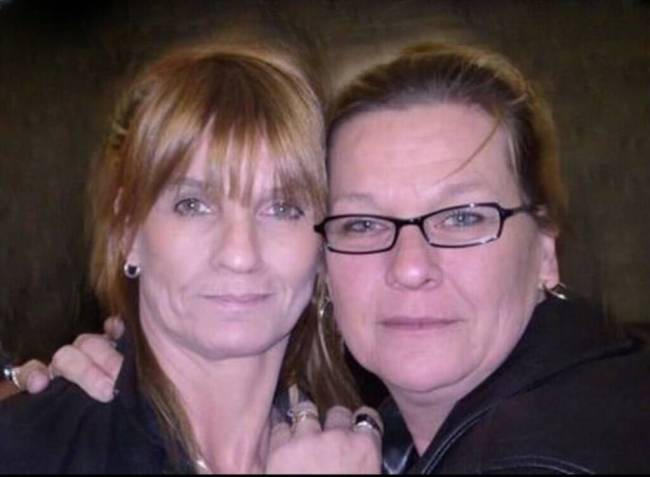
The two sisters’ lives diverged as they got older — Diane Schryver and her family in Las Vegas had struggled with housing for several years, and Sallie Schryver lived in California.
“She was just caught in a rut, like so many people in this country,” Sallie Schryver said of her sister’s struggle with housing.
When Sallie Schryver spoke to her on Aug. 5, she said Diane Schryver had struggled to remember facts like why she was in the hospital, the name of her sister’s son or where she lived. So when Sallie Schryver learned that her sister had been discharged just a few hours later, she was bewildered.
“They just opened those doors wide open so that she could walk right out there to her death,” Sallie Schryver said.
The events of her discharge are unclear, with Sallie Schryver believing it was because of an overcrowded hospital.
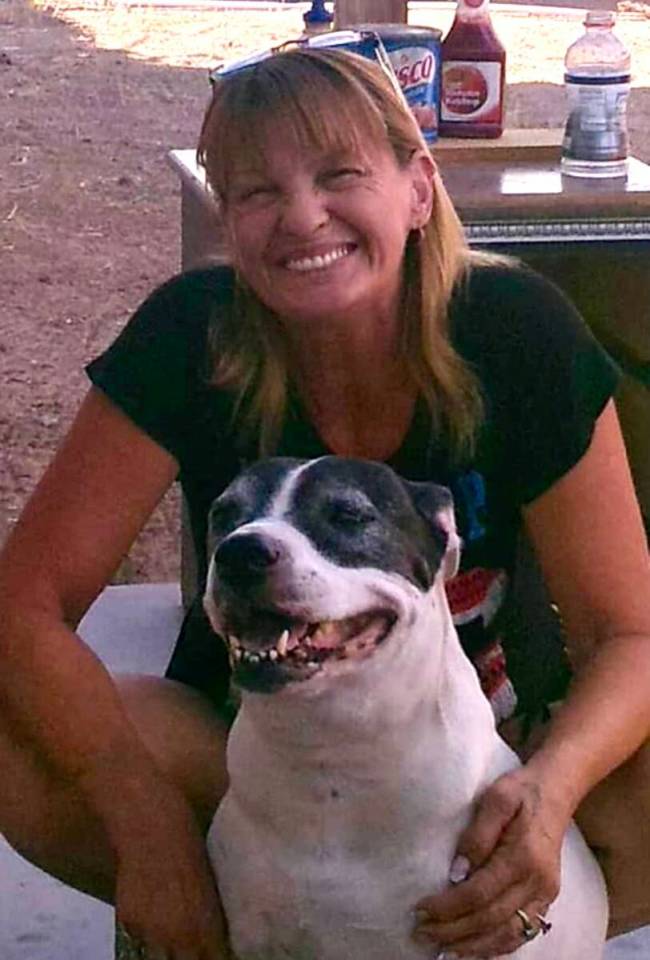
Hospitals do experience more incidents in the summer, but both UMC and Valley said they remained properly staffed.
Valley Hospital told the Review-Journal that it cannot comment on any specific patient issues because of federal privacy laws. In general, the discharge policy recommends that patients wait until they have been officially discharged by a physician before leaving the hospital, but if a patient wants to leave, the hospital must respect that decision, according to spokesperson Gretchen Papez.
“We do work very diligently with patients who are unhoused to provide them with as many resources as possible before they leave our hospital, whether it’s water, food, bus passes or other items, especially during extreme hot and cold weather,” Papez wrote in a statement.
Months later, Sallie Schryver understands little about her sister’s discharge, or where she went afterward. Sallie Schryver described a traumatizing 4½-day search for her sister. In a frenzy, she called the hospital, the coroner and the police.
Just before she was going to get on a plane to search the Las Vegas streets herself, she heard news from the coroner’s office. Her sister had died from environmental heat stress.
Sallie Schryver was told that someone had reported her sister acting erratically on the street, and then saw that she passed out a little while later. The odd behavior made sense to Sallie Schryver, given the disorientation she herself felt when she once experienced heatstroke years ago.
“You literally get blinded. You just see white, like a blinding white,” she said. “It’s really a horrifying, terrifying thing to go through.”
Sallie Schryver has been overwhelmed by confusion and anger about the situation, but for the most part, she just misses her sister, whom she described as incredibly witty. Although she didn’t get the chance to visit much, she recalls one magical trip to Las Vegas 17 years ago.
“We had the best time ever,” she wrote in a message. “Dancing to the live bands on Fremont was epic, and spending most of our time together was very special and memorable. I miss her.”
Opioid epidemic exacerbates effects of heat
As heat rises, so too does a drug epidemic, both in Las Vegas and around the country.
Rouse, the coroner, said drug deaths tend to spike in the summer heat. Both she and Patel, of UMC, believe the physiological response to hard drugs is hindering the body’s ability to keep cool. It’s a lethal combination.
“We can’t talk about heat without talking about drugs,” she said. “Drugs, in themselves, make us more susceptible to succumbing to heat. … What we are experiencing more than anything here in Clark County is related to opioids.”
A relapse for Stephen Paprotny, 36, turned fatal as he collapsed outside.
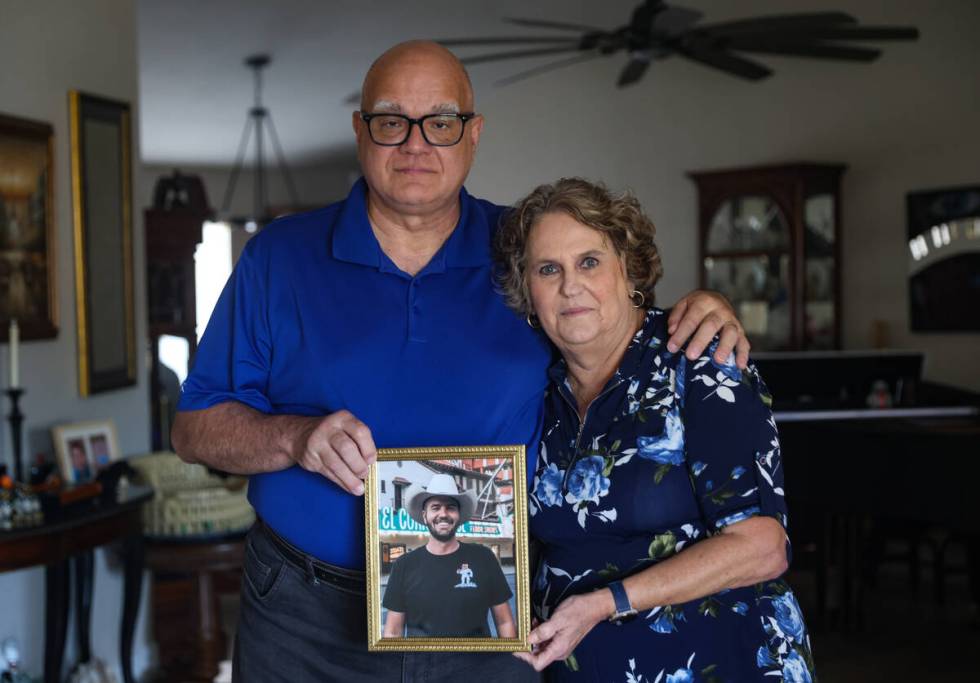
Paprotny liked animals so much that he regularly fed a pigeon at his work, much to his stepmother Aimee Paprotny’s confusion. It was a testament to his gentle nature.
“‘Everybody hates pigeons. I have to take care of them,’” she remembered Stephen Paprotny saying to her. “That was the way he looked at life. I mean, there wasn’t an animal on the face of this planet that he didn’t love.”
After years of “self-medicating” for bipolar disorder, Stephen Paprotny was finally clean. He lived for a year with his brother, who his parents said would have known had he been using.
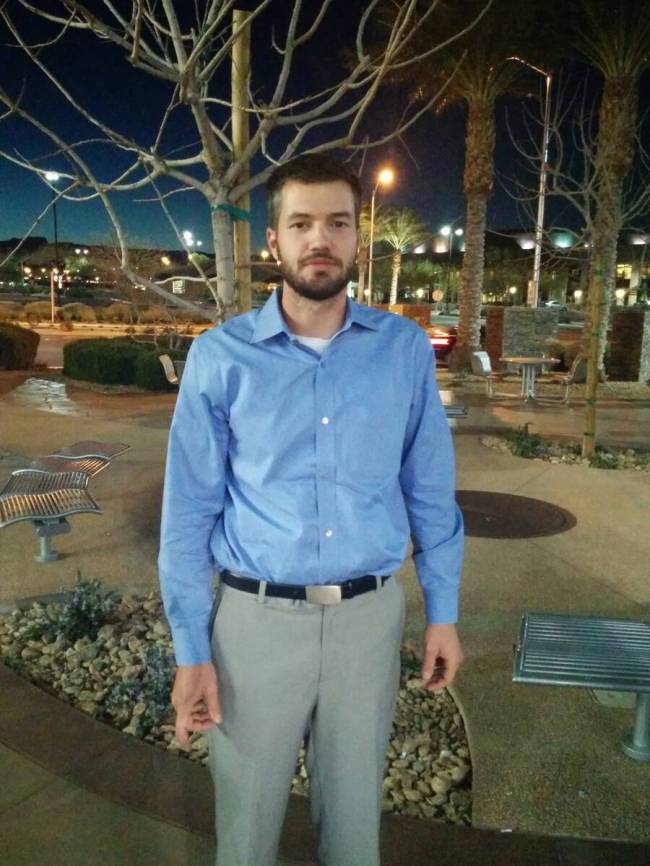
On June 1, Stephen Paprotny moved into his own place. He had a steady job as a car salesman, and was on track to pay off his student debt — he had been just one semester away from finishing nursing school.
Six days later, he was found lying on the pavement outside of his truck.
For Aimee Paprotny, his stepmother of more than 30 years, the several hours he spent lying on the pavement are the worst part.
“You would think that at some point during that morning, his heart was still beating,” she said. “People went by. There’s no doubt in my mind that people went by and saw him, maybe even saw part of his body, and nobody did anything.”
Stephen Paprotny’s causes of death were mixed drug use — combined effects of fentanyl and cocaine — as well as environmental heat exposure. The temperature outside was 108 degrees, according to the autopsy report. The report said a person was walking in the parking lot around noon and called 911. He was declared dead at 1:30 p.m.
It’s still unclear to the family how much the drugs played a role in his death, and how much the heat did. Even ignoring the biological effects of combined drug use and heat exposure, drugs can lead a person to fail to hydrate, according to Patel, the UMC doctor. Passing out in the sun also means much longer exposure.
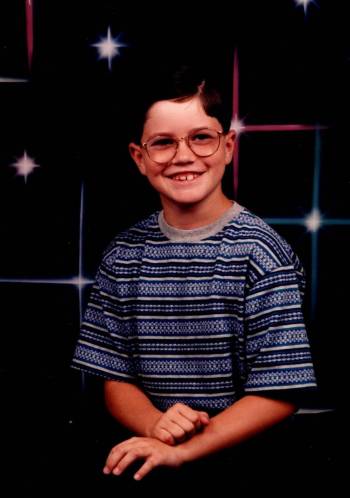
“There were many, many hours that he laid out there. If you could see the blisters that were on his face, he was out there for many, many hours. It wasn’t just an hour or two,” Aimee Paprotny said.
Stephen Paprotny had struggled before, even overdosing in the past, but Aimee Paprotny said the timing of his death, when he had seemed to be doing so well, was a “gut punch.”
“You’re constantly hoping that this will be the time that he will get it together. You pray, you hope, you cry, you do whatever you can do,” she said. “You’re never prepared.”
Scars linger for families
While all three people died under different circumstances, the common ground remains: Heat played a factor in their deaths. Summers are getting more unbearable by the year, and Las Vegas is months away from having a final heat-related death count for 2024.
At Judy Reiber’s celebration of life, her husband passed out bookmarks with her photo on them — a nod to the joyful pastime she lived and died for.
Tim Reiber’s days away from work are now spent alone with his German shepherd, Rudy, and cat Phoebe. The cat never took an interest in him until now, almost as if she knows that her lone owner is the only shot left at a good life.
Without his wife’s financial help, keeping up with a mortgage payment has been an uphill battle, and he fears he could lose their home, too.
He’s found solace at Bible study as of late, an attempt to find community in a city where he has no family ties. Faith is one thing he can still cling to.
He also can try to honor his wife’s memory. In September, Tim Reiber took his co-worker to see P!NK, his wife’s favorite artist. But without his wife in the audience with him, he said it was impossible to enjoy.
“She should’ve been there with us,” he said.
Contact Alan Halaly at ahalaly@reviewjournal.com and Katie Futterman at kfutterman@reviewjournal.com. Follow @AlanHalaly and @ktfutts on X.












